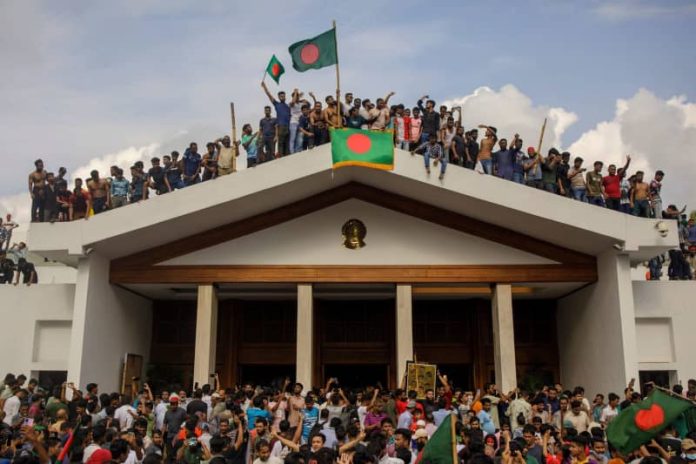Bangladesh’s interim government, led by Muhammad Yunus, is grappling with growing challenges to the country’s territorial integrity and governance, particularly in the southeastern border areas close to Myanmar.
Conflict has spread in Myanmar’s Rakhine State, escalating tensions along the Naf River and raising concerns about border security. The Arakan Army (AA), a militant group fighting for autonomy in Myanmar, recently captured Maungdaw, a major town on the Bangladesh-Myanmar border. The organization has accused militants in Rohingya refugee camps in Bangladesh of perpetrating cross-border violence, further exacerbating the situation.
Local authorities in Teknaf have restricted travel along the Naf River due to escalating violence. Fishermen report hearing bombs and shells from the direction of Myanmar, and Bangladeshi boats have been fired upon. Some fishermen have been detained by the Arakan army, raising fears among residents near the border. The island of St. Martin, a strategic outpost in the Bay of Bengal, faces disruptions in transportation and communication with the mainland, further fueling concerns about the government’s ability to protect national sovereignty.
Former Ambassador and President of Bangladesh Enterprise Institute M. Humayun Kabir highlighted the growing threats to the region. “Bullets and shells landing on Bangladeshi soil underscore the risk of spillover from Myanmar’s internal conflict,” he said.
Criticism of the interim government extends beyond border security. Muhammad Yunus’ Victory Day speech on December 16 avoided mentioning the atrocities committed in Bangladesh’s liberation war or the role of founding leader Sheikh Mujibur Rahman. The absence of traditional parades and festivals has been widely criticized, with some accusing the government of erasing Bangladesh’s historical heritage.
Relations with India have also been strained. Comments by key government figures downplaying India’s contribution to Bangladesh’s independence have led to backlash. Despite strained relations, India is committed to fostering stability, as demonstrated by the recent visit of Foreign Secretary Vikram Misri.
Economic activity in the border areas has been severely disrupted and trade and livelihoods have been affected. The Yunus government’s inability to meet these challenges has been heavily criticized, with many questioning its ability to manage the country’s internal and external crises.
As tensions persist, the interim government faces growing pressure to restore order, secure the border and address the political and economic turmoil that threatens Bangladesh’s stability.





